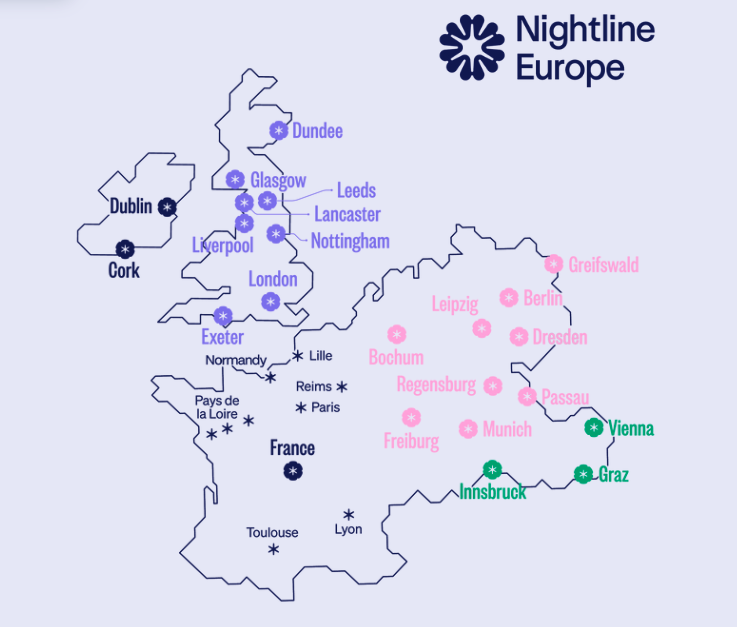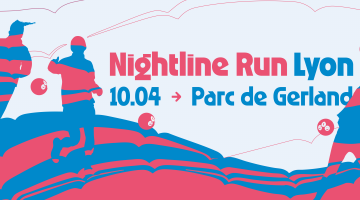Presenting Nightline Europe Starter Kit : a guide to creating a new Nightline

Nightline Europe: Strengthening Student Mental Health Across the Continent
Recognizing the benefits of working together across Europe on student mental health to boost attention, investment and action on the issue at the European level; the Nightline Europe network was officially created in autumn 2023.
The network aims at strengthening connections between existing and future European Nightlines to share best practices, join forces, and ensure quality of service. It supports the growth of Nightlines by developing innovative mental health projects, accessing funding, increasing visibility, and exchanging knowledge. Additionally, the network focuses on safeguarding and improving the quality, accessibility, and availability of services, while expanding its influence on student mental health policy across Europe.

The 'Starter Kit' Project
The Starter Kit is one of Nightline Europe’s key projects, offering practical tools and resources and outlining key steps and milestones to get started. The kit will include essential information to help plan communications, policies, and guidelines for the new Nightline, while also sharing best practices and tips from established Nightlines of. Additionally, the Starter Kit aims to ensure consistent quality of the “Nightline” name, by helping new Nightlines to meet common standards for both services and volunteer management.
Divided in 8 parts, the Starter Kit project will cover the following of the key steps to consider when it comes to setting up a Nightline:
1- Creating a team for set-up.
2- Acquiring institutional and financial support.
3- Enacting legal/institutional requirements.
4- Recruiting and training volunteers.
5- Logistics.
6- Measuring and communicating impact and evaluation.
7- Communication with partners and target audience.
8- Planning for the future.
Indeed, creating and building a new Nightline is no easy task. Alexander, Chairman and Representative for Nightline Vienna (Austria), a member of the Nightline Europe network, agrees:
Nightline Vienna met various and unexpected challenges in the first months after launching, such as staff shortage during final exams or a lack of public awareness.
A well thought strategy enables emerging Nightlines to limit the impact of challenging factors. With the Starter Kit project challenges will be overcome since they will be known.
For Alexander, Nightline Europe helps to ensure that Nightlines have a meaningful impact thanks to quality standards required for membership. He identifies the 4 principles which guide Nightlines in their peer-to-peer support as essential to create a safe and supportive environment for student callers as well as a consistently high-quality service: anonymity, confidentiality, non-judgement, and non-advisory practice.
For anyone thinking about starting a Nightline, those principles must be at the heart of the process. And for the rest, the Starter Kit will prove a highly useful toolbox of information, experience and tips from fellow Nightliners across the Nightline Europe network, and ultimately contribute to the network’s overall goal: better mental health for all students in Europe and beyond. Watch this space!


